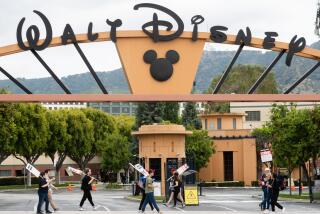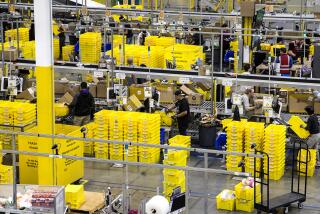Jury Exonerates Hyundai Motor of Sex Harassment and Discrimination : Litigation: After just an hour of deliberation, the panel found that the employee failed to prove her allegations of bias.
- Share via
SANTA ANA — After just an hour of deliberation, a jury found Monday that a Hyundai Motor America employee failed to prove her allegation that she was discriminated against and harassed because she is a woman.
Debra Douglas, a national spokeswoman for the company, filed a lawsuit in Orange County Superior Court seeking $164,000 in damages plus a punitive charge.
In closing arguments Monday, Hyundai’s lawyer argued that Douglas had failed to allow the company to handle some claims of sexual harassment internally and had instead gathered ammunition for a court case. As for the discrimination charge, defense attorney Nancy McClelland said, Douglas was overly ambitious, seeking to leap into a senior position when men with her experience had not done so.
Whether Douglas will remain with the Fountain Valley company, which is the U.S. headquarters for the Korean car maker, was not clear. She has continued to work in the company’s public relations department since she filed the lawsuit in January, 1991.
The jury of five women and seven men heard almost three weeks of testimony. Douglas did not have to prove that gender was the only reason she was passed over twice for a promotion, Judge Randell L. Wilkinson said as he gave final instructions to the jurors. But she had to prove that gender was one reason for the decision.
As evidence, Douglas’ lawyer, Donald B. Wallace, cited two oral statements from a supervisor, William Wolf, that Douglas would have a hard time getting ahead at Hyundai because she is a woman.
But Hyundai executives who took the witness stand said there were other reasons Douglas didn’t advance. McClelland said Monday that Douglas did not have the 10 years’ experience that the job required, that she was unqualified and that Hyundai suffered “staggering losses” during 1991. The losses, she argued, affected the company’s decision not to fill a management position Douglas was seeking.
Turning to the sexual harassment charge, Wilkinson told the jury it had to decide whether Douglas had been the target of unwelcome behavior because of her gender; and whether such behavior had created a hostile work environment and that she had made known that the behavior was unwelcome.
Douglas reported a 1988 incident to the company, McClelland said. A former boss, Bruce Matthias, had said at a business meeting that Douglas had a “nice rack,” the defense attorney said, and he had been disciplined for that. However, Douglas did not report later incidents, McClelland said: an invitation from one executive, during a business trip, to join him in his hotel room; and hugs, kisses and admiring comments from another executive, Mark Juhn.
At one point, Douglas testified, Juhn bent her over to inspect her behind. Juhn testified that Douglas had misinterpreted his actions.
Douglas “doesn’t like hugs, and that’s fine, she told (Juhn),” McClelland said. “But to suggest that this was a man in hot pursuit of Miss Douglas when he never made a sexual advance, never sought to be alone with her, never asked for sexual favors--you be the judge of whether that’s sexual harassment.”
Earlier in the trial, Wilkinson had thrown out charges against all Hyundai executives named by Douglas except Juhn.
The jury also denied Douglas’ allegations that the company had caused her emotional distress and had retaliated against her after she filed her lawsuit.
Neither Douglas nor her attorney said Monday whether the decision will be appealed.






